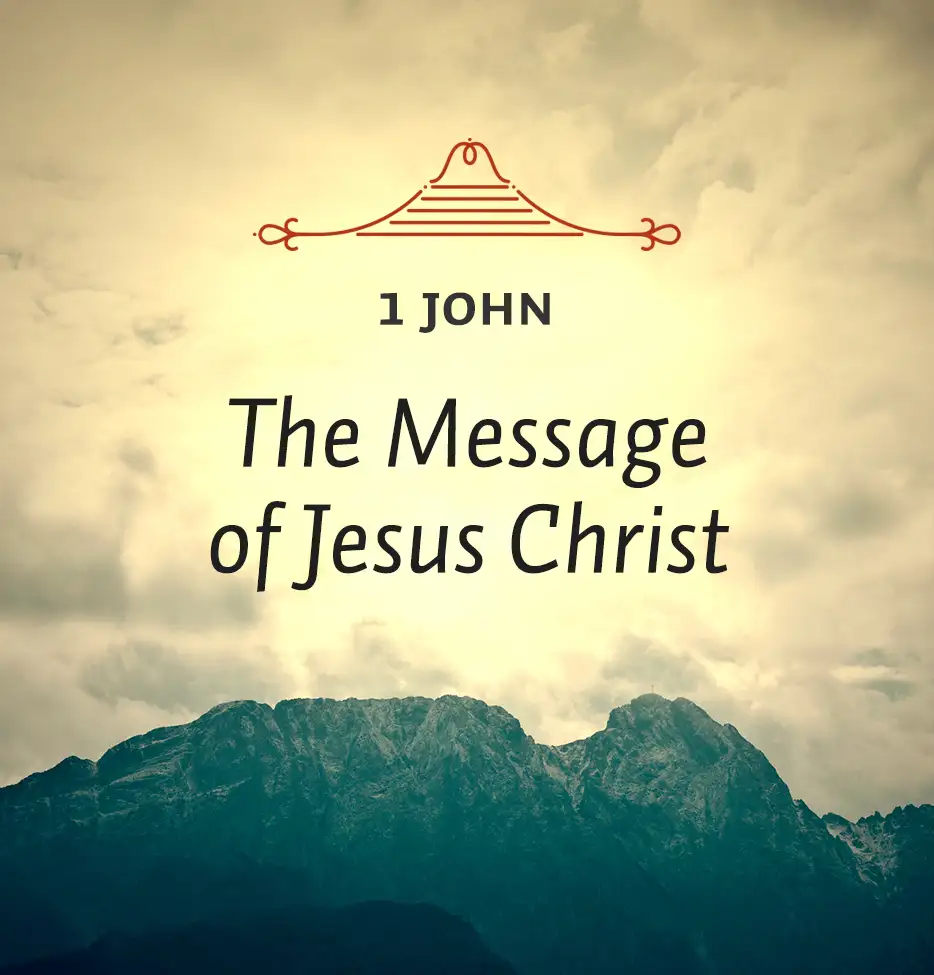“What is God?” asks the fourth question of the Westminster Shorter Catechism, and well it might. For this is a question that has puzzled men and stretched their minds for centuries. Religion has to do with God; and people, as anyone can observe, are religious. But who is the God they worship? What is He like? What are His characteristics? Most important of all perhaps, how can we know Him? The Catechism says that we are made to know God, calling this “man’s chief end.” It defines Him: “God is a Spirit, infinite, eternal, and unchangeable, in his being, wisdom, power, holiness, justice, goodness, and truth.” But one can read this definition and feel that, while it may help us to know about God, nevertheless it does not really help us to know Him. So the questions remain.
John apparently also had to do with people who asked such questions, but he has given us an answer which is at once simpler and more profound. What is God? John answers: “God is light, and in him is no darkness at all.”
This statement is John’s first great thesis, leading naturally into much of the material that follows. In this section of the letter John presents his thesis (both from a positive and negative perspective), deals with three related denials concerning the nature and consequences of sin, and issues a call to holiness, “without which,” as the author of Hebrews states, “no one will see the Lord.” The outline might also be presented as: the holiness of God, the sinfulness of man, and man’s need of a Savior. That is, it is a statement of the whole of the Gospel.
None of the other biblical writers tells us so much about what God really is as does the apostle John. All tell what He does. Some describe the glory which surrounds Him. But John tells what God is in His true nature. He does this in three striking definitions: God is spirit (John 4:24); God is light (1 John 1:5); and God is love (1 John 4:8). It is a characteristic of these three definitions that the predicates occur without the definite article. In other words, we are told, not that God is the Spirit, the light, and the love, or even, in all probability, a Spirit, a light, and a love, but rather spirit, light and love themselves. In this we have the broadest and most comprehensive definition of God that can probably be devised in human language.
John’s definition of God is stated both positively and negatively, but he offers the positive statement first: God is light. This statement carries the reader into a world of imagery that is as old as religion and which would have been quite familiar and agreeable both to John’s readers and to his opponents. It is found in the Old Testament, for instance. David writes in one psalm, “The LORD is my light and my salvation” (Ps. 27:1). Another psalm declares, “For with thee is the fountain of life; in thy light shall we see light” (Ps. 36:9). In Psalm 104 we read, “Thou art clothed with honor and majesty, who coverest thyself with light as with a garment” (vv. 1-2). In each of these verses light seems strikingly appropriate as an image of God, for it points to God as the true source of revelation, intelligence, stability, ubiquity, excellence, vision and growth. It is the nature of light that it is visible and that it makes other things visible. So also is it God’s nature to make Himself known.






